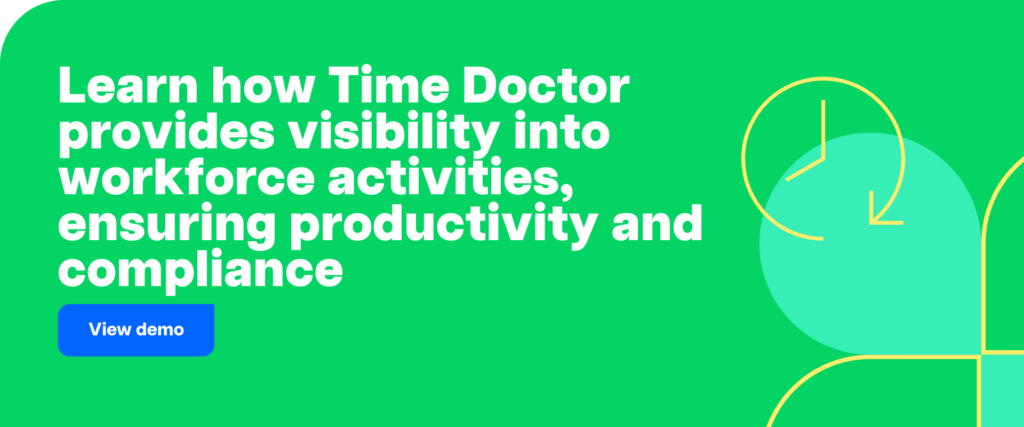[ad_1]
46
Are you assured that your small business is absolutely ready to fulfill the evolving compliance requirements in 2024?
Compliance has by no means been extra essential with rules tightening and the digital panorama changing into extra complicated.
From rising dangers of information breaches to evolving worldwide privateness legal guidelines, companies should adapt shortly or face vital penalties.
2024 isn’t simply one other 12 months—it’s a time that calls for companies reevaluate their information safety methods, safety protocols, and authorized duties. Whether or not it’s stricter enforcement of cross-border information transfers, new privateness legal guidelines on the horizon, or an increase in cyber safety threats, firms should keep vigilant to guard their operations and reputations.
This text lists the prime 10 compliance requirements your small business should adhere to in 2024. These rules will not be simply authorized necessities—they’re an funding in your small business’s future success, serving to safeguard operations and construct belief with prospects and staff.

Desk of Contents
Introduction to compliance requirements (2024 replace)
Compliance requirements are extra than simply pointers—they’re crucial for enterprise success in 2024. They dictate how firms deal with delicate data, defend information privateness, and stop safety breaches. With rising cyber safety threats and evolving authorized frameworks just like the GDPR and CCPA, assembly these requirements just isn’t elective; it’s important for shielding your small business from substantial fines, potential shutdown as a consequence of authorized hassle, and irreparable reputational injury.
Staying compliant is essential whether or not you’re managing information by means of workforce analytics instruments like Time Physician or just dealing with buyer data.
Let’s dive into the highest 10 compliance requirements for 2024 and discover how one can guarantee your organization stays heading in the right direction.
Listed here are the highest 10 compliance requirements that can maintain your small business on monitor in 2024.
1. Normal Knowledge Safety Regulation (GDPR)
The Normal Knowledge Safety Regulation (GDPR), launched by the European Union (EU) in 2018, is designed to guard the non-public information of EU residents. It applies to any enterprise worldwide that handles information from EU residents.
The regulation empowers people by giving them management over their information, and it requires companies to be clear about how they accumulate, retailer, and use that information. Failure to conform can result in hefty fines, and with 2024 bringing stricter enforcement—particularly for worldwide information transfers—companies should keep up-to-date.
Whether or not utilizing platforms like Slack for inside communication or dealing with buyer information, guaranteeing that your practices align with GDPR requirements is significant to keep away from breaches and penalties.
2. California Client Privateness Act (CCPA) & CPRA
The California Client Privateness Act (CCPA) and its modification, the California Privateness Rights Act (CPRA), are designed to present customers management over their private information. These legal guidelines apply to any enterprise that collects and makes use of information from California residents and covers delicate data like social safety numbers, bank card particulars, well being information, and biometric information.
Below these rules, transparency is vital. Instruments like HubSpot , which manages buyer information, should be configured to deal with information securely and make sure that companies stay compliant with requests for deletion or updates to private data.
3. SOC 2 (Service Group Management)
SOC 2 is a well known {industry} normal that ensures service suppliers securely deal with information, particularly in cloud-based platforms with larger dangers of cyber safety threats.
When counting on providers like Dropbox for file sharing and storage, attaining SOC 2 compliance signifies that the corporate implements strict entry controls and encrypts delicate information. This reduces the chance of breaches and builds belief with purchasers who rely upon safe providers.
4. ISO/IEC 27001 Info Safety Administration
ISO/IEC 27001 is the worldwide benchmark for managing data safety. It supplies companies with a framework to determine dangers and set up safeguards in opposition to malware, phishing, and ransomware.
Take Trello , for instance. This challenge administration instrument advantages from ISO/IEC 27001 compliance by defending information shared throughout groups. This normal ensures each inside and buyer information stay protected from exterior threats.
5. Well being Insurance coverage Portability and Accountability Act (HIPAA)
HIPAA units strict rules round how healthcare companies deal with affected person data. Failing to conform can result in extreme authorized and monetary penalties.
For healthcare organizations utilizing options like Zoom for Healthcare to handle telemedicine, it’s essential to make sure that video consultations and affected person information are encrypted and dealt with with HIPAA-compliant protocols. This safeguards delicate well being information and ensures affected person belief.

6. Cost Card Business Knowledge Safety Customary (PCI DSS)
The PCI DSS is designed to guard companies that deal with bank card transactions, guaranteeing that delicate monetary information is shielded from malware, phishing, and different threats.
Think about working an internet retailer with Shopify. PCI DSS compliance ensures that your buyer’s cost data is securely encrypted and saved. This reduces monetary dangers and provides prospects confidence in your platform.
7. Sarbanes-Oxley Act (SOX)
The Sarbanes-Oxley Act (SOX) is essential for sustaining monetary transparency, significantly for publicly traded firms. Its purpose is to stop fraud and guarantee correct monetary reporting.
Accounting instruments like QuickBooks profit from SOX compliance by maintaining monetary information correct and well-audited. This helps companies keep accountable to stakeholders and meet authorized obligations.
8. Federal Info Safety Administration Act (FISMA)
The Federal Info Safety Administration Act (FISMA) enforces strict safety measures for federal businesses and contractors to guard delicate authorities information from cyber safety threats.
For firms managing authorities contracts, platforms like Microsoft 365 Authorities guarantee compliance with FISMA by offering encrypted communication, multi-factor authentication, and safe cloud storage, all aligned with federal safety requirements.
9. Worldwide Visitors in Arms Rules (ITAR)
The Worldwide Visitors in Arms Rules (ITAR) govern the export of defence-related know-how, guaranteeing that delicate data stays safe. Firms working within the protection sector should adhere to ITAR to stop unauthorized entry to protection information.
Safety options like Atlassian’s Jira can assist monitor and handle defence-related tasks, however companies should implement strict entry controls and encryption to stay compliant with ITAR necessities.
10. Business-specific requirements
Completely different industries have particular compliance necessities that transcend normal rules. For instance, HITRUST is important for healthcare to adjust to HIPAA, whereas NERC-CIP is crucial for securing power sector infrastructure.
Time Physician, a workforce analytics platform, can assist companies in these sectors guarantee compliance. With options like detailed audit logs, safe information storage, and exercise monitoring, Time Physician allows organizations to handle delicate worker information and meet the safety necessities of industry-specific rules.
The way to keep compliant in 2024
Staying compliant with evolving requirements requires a proactive and structured strategy. Listed here are some crucial steps to assist maintain your small business aligned with 2024’s compliance necessities:
1. Automate compliance monitoring
Using instruments like Time Physician to trace worker actions and generate audit logs can assist preserve compliance with {industry} requirements. Moreover, integrating instruments like Asana for process administration and Microsoft Defender for endpoint safety creates a complete compliance framework by addressing totally different information dealing with and safety elements.
2. Improve safety measures
Implementing safety layers reminiscent of multi-factor authentication (MFA) and encryption is essential. Instruments like LastPass or 1Password supply MFA and safe password administration, whereas encryption options defend delicate data from cybersecurity threats.
3. Prepare staff
Common safety consciousness coaching is important for stopping human error. Educate your staff on recognizing phishing assaults, avoiding social engineering ways, and defending confidential information. Steady coaching reinforces the significance of compliance and ensures everyone seems to be up-to-date on the most recent safety practices.
Conclusion
Staying compliant with the most recent requirements is important for shielding your small business in 2024. As rules evolve, assembly compliance necessities isn’t nearly avoiding fines—it’s about constructing belief along with your prospects, safeguarding delicate information, and guaranteeing the long-term success of your operations.
Taking a proactive strategy is important to maintain your small business on monitor. Usually reviewing your inside processes, updating safety measures, and offering ongoing coaching to your staff are all steps that may assist make sure you’re aligned with essentially the most present requirements.
Take the chance now to evaluation your compliance practices and conduct an inside audit to evaluate how nicely your organization meets the 2024 requirements.
Is your small business adequately ready to strengthen information safety, streamline compliance processes, and guarantee staff stay knowledgeable concerning the newest rules? Proactive efforts right now will assist defend your small business tomorrow.

Liam Martin is a serial entrepreneur, co-founder of Time Physician, Employees.com, and the Operating Distant Convention, and creator of the Wall Road Journal bestseller, “Operating Distant.” He advocates for distant work and helps companies optimize their distant groups.
[ad_2]

